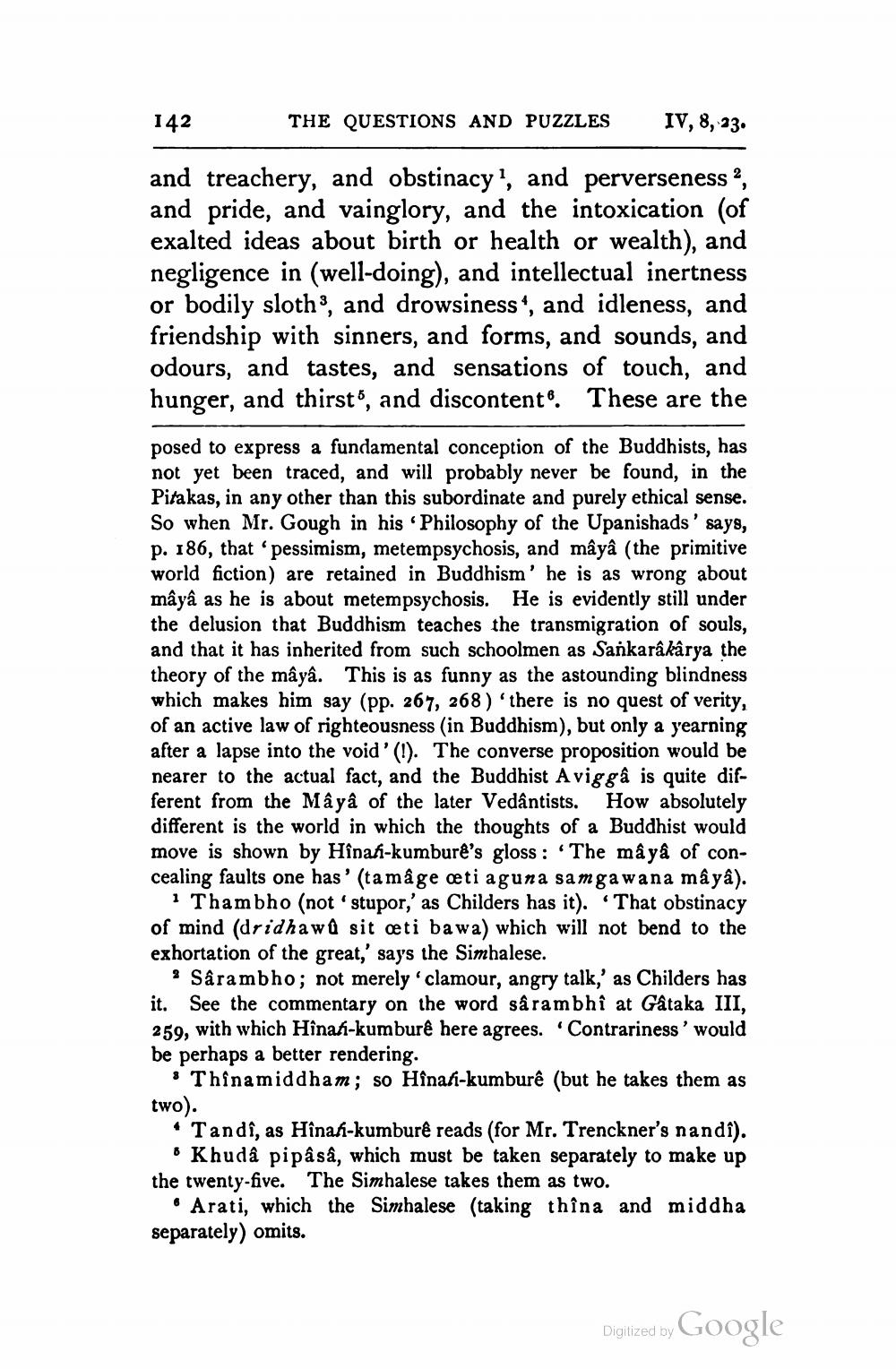________________
142
THE QUESTIONS AND PUZZLES
IV, 8, 23.
and treachery, and obstinacy', and perverseness?, and pride, and vainglory, and the intoxication (of exalted ideas about birth or health or wealth), and negligence in (well-doing), and intellectual inertness or bodily sloth, and drowsiness, and idleness, and friendship with sinners, and forms, and sounds, and odours, and tastes, and sensations of touch, and hunger, and thirst", and discontent. These are the
posed to express a fundamental conception of the Buddhists, has not yet been traced, and will probably never be found, in the Pitakas, in any other than this subordinate and purely ethical sense. So when Mr. Gough in his Philosophy of the Upanishads' says, p. 186, that 'pessimism, metempsychosis, and mâyâ (the primitive world fiction) are retained in Buddhism' he is as wrong about mâyâ as he is about metempsychosis. He is evidently still under the delusion that Buddhism teaches the transmigration of souls, and that it has inherited from such schoolmen as Sankarâkârya the theory of the mâyâ. This is as funny as the astounding blindness which makes him say (pp. 267, 268) 'there is no quest of verity, of an active law of righteousness (in Buddhism), but only a yearning after a lapse into the void' (1). The converse proposition would be nearer to the actual fact, and the Buddhist Avig gå is quite different from the Mâyâ of the later Vedantists. How absolutely different is the world in which the thoughts of a Buddhist would move is shown by Hînan-kumbure's gloss : The mâyâ of concealing faults one has' (tamâge ati aguna samgawana mâyâ).
1 Thambho (not 'stupor,' as Childers has it). That obstinacy of mind (dridhaw û sit cti ba wa) which will not bend to the exhortation of the great,' says the Simhalese.
? Sarambho; not merely clamour, angry talk,' as Childers has it. See the commentary on the word särambhi at Gataka III, 259, with which Hinah-kumburê here agrees. Contrariness' would be perhaps a better rendering.
I Thinamiddham; so Hînafi-kumburê (but he takes them as two).
• Tandi, as Hînah-kumburê reads (for Mr. Trenckner's nandi).
• Khuda pipâsâ, which must be taken separately to make up the twenty-five. The Simhalese takes them as two.
. Arati, which the Simhalese (taking thina and middha separately) omits.
Digitized by Google




